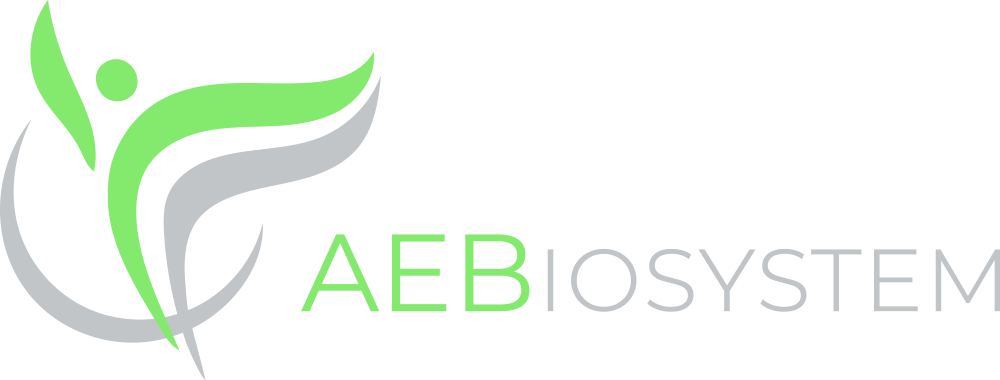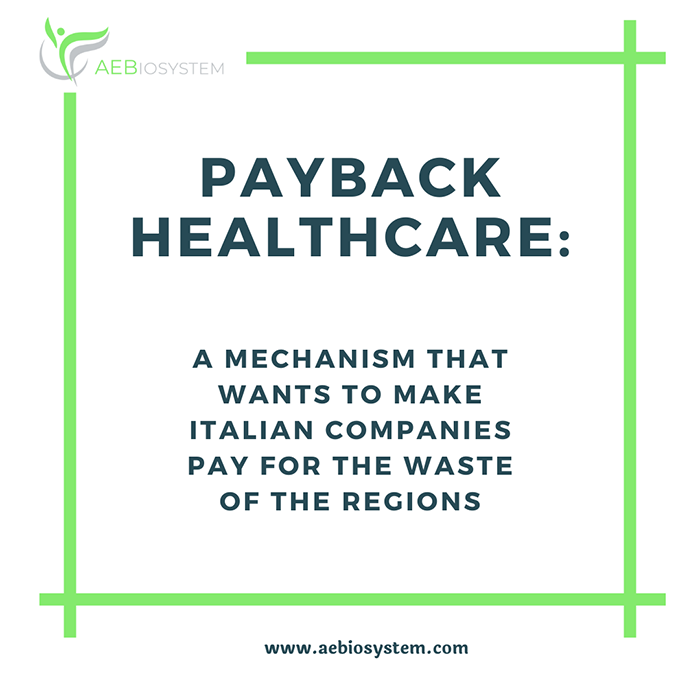Regions that have spent more on health care than planned (i.e., more than 4.4 percent of their total spending) can ask the companies they bought medical devices from to return to them an amount equal to 50 percent of the excess spending made. What do these companies have to do with the regions’ faulty health accounts? Nothing, and despite having sold their products to the region following regular public tenders, they are having their seized their legitimate earnings. Something very much like extortion. If the state goes over budget to treat Italians, it’s up to companies to pay out of their own pockets. By January 16 January the industry was supposed to “compensate” the regions for the surpluses accrued on orders. But the extension decided by the government and confirmed in a decree-law approved in the Council of Ministers has moved the payment to next April 30.
The Health Care Payback on medical devices was approved in the Aid Decree Bis and obliges companies in the health care sector to reimburse 50 percent of the expenses made in excess by the regions. It is a mechanism created to cope with the increase in public health spending when regions exceed the ceilings of budgeted health spending from year to year. A mechanism also seeks to make Italian companies pay for the regions’ wasteful spending. By passing this legislation, according to Fifo, it puts at risk the fabric of hospital providers, 95 percent of which is composed of micro, small and medium-sized enterprises, with more than 100 thousand workers involved. Up to 80 percent of the companies involved could close to the detriment of workers and the Italian health care.
The ultimate goal of containing public spending,” the Federation added, “is certainly correct, but the Payback measure is unfair and absolutely vexatious, because it deresponsibilizes the public administrators, penalizing instead medical device manufacturers and distributors. “All of this, then, could result in a shortage of supplies of medical devices essential for patient care, and of technical support services to hospitals, the importance of which was highlighted during the recent pandemic.
According to Fifo data, for the five-year period 2015-2020, companies are expected to return, on average, sums equal to half of their annual turnover (about 3.6 billion euros), with considerable fiscal difficulties, since these are budgets that have already been filed, and with vexatious modalities that also provide for the offsetting of receivables owed by supplier companies against healthcare companies.
Having approved the Decree extending the payment to April 30, 2023, the new Def, the economic and financial document, to indicate whether there are resources to mitigate the impact of the payback on the companies, because otherwise there is a risk of facing a supply deficit to our hospitals. The agreement reached also includes raising the ceiling for medical devices, which from the current 4.4 percent of total health care spending would be raised to 5.2 percent, thus reducing the deficit that we would then have to restore.
However, a mechanism as inequitable as the Payback on medical devices should not be postponed but
simply abolished. The real risk is an imminent shortage of medical devices in hospitals resulting in bankruptcy for hundreds of SMEs that distribute life-saving devices and other materials for the proper conduct of surgical activities. There could be shortages in hospitals in the event of a supply stop:
- Sterilizers, disinfectants and antiseptics
- Products for extracorporeal circulation
- Prostheses and heart valves
- Coronary, cardiac and vascular stents
- Protective devices and accessories for radiology and radiotherapy
- Devices for trauma (bone) and orthopedic prostheses
- Pulmonary ventilators for resuscitation, intensive care, covid wards
- Instrumentation and surgical irons
- Disposable gowns, gauze, bandages, plasters
- Devices for: dialysis – lifesaving – for emergency rooms
Based on data made public by the Court of Auditors regarding the 2015-2020 spending caps, FIFO estimated the spending overrun and payback to be borne by NHS provider companies. Expenditure has grown over the time period considered by 18.3 percent, from 5.8 billion in 2015 to 6.8 in 2020. In the last year, spending grew by 7.3 percent, or more than 460 million euros in absolute value.
Overall, the payback that companies are required to pay would amount to the figure of 3.6 billion euros, which compared to annual public spending on medical devices represents well over 50 percent of it.
“If the government does not cancel the payback,” said the president of Confindustria Dispositivi Medici, Massimiliano Boggetti – it must have the courage to tell citizens clearly that it is unable to deliver public health. If serious health planning is not done and we continue to issue
tenders whose sum of awarded values exceeds the available regional health fund, the regions will will continue to exceed spending caps every year. The payback with the imposed spending caps is nothing more than a way to shift onto the provider companies a portion of the health care costs that the Health Service is supposed to
provide to treat citizens, but which the state does not want to pay.”
The president of Confindustria medical devices, Massimiliano Boggetti, in a letter addressed to the Prime Minister, Giorgia Meloni in which it is also stressed that by imposing spending caps so low, the result will be healthcare without innovation: the quality of medical devices will drop, technological innovation will no longer enter healthcare facilities, and doctors will be forced to work without having state-of-the-art tools.
Payback is also an unfair norm for citizens and patients: those who can afford it will continue to treat themselves privately at their own expense; those who cannot will suffer firsthand the damage resulting from this law enemy of public health care.

